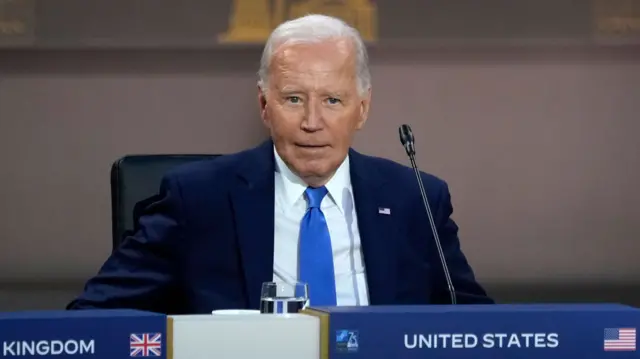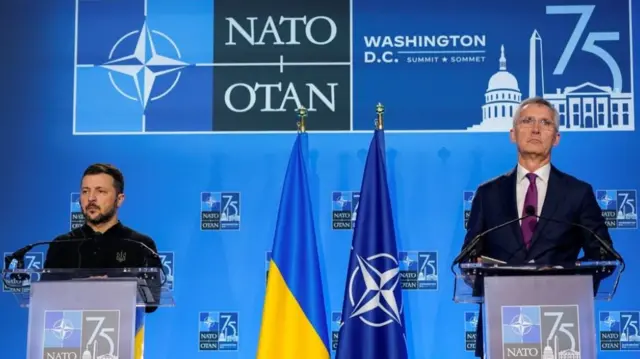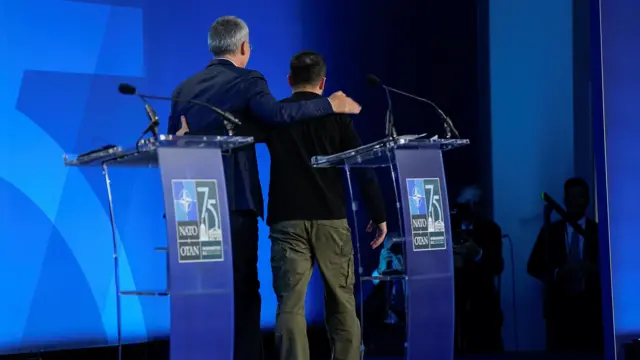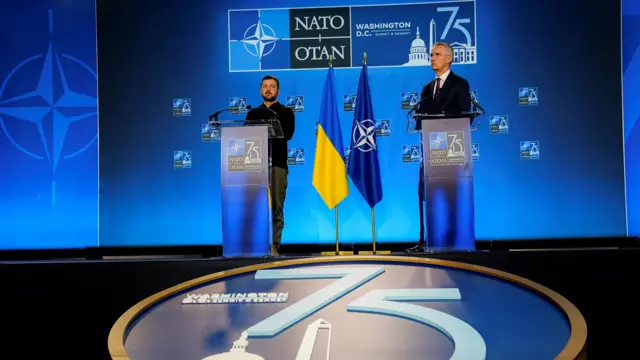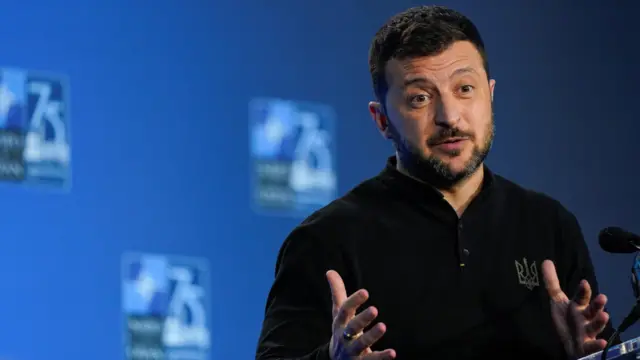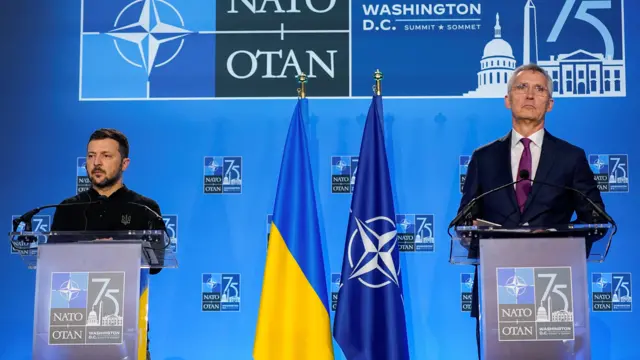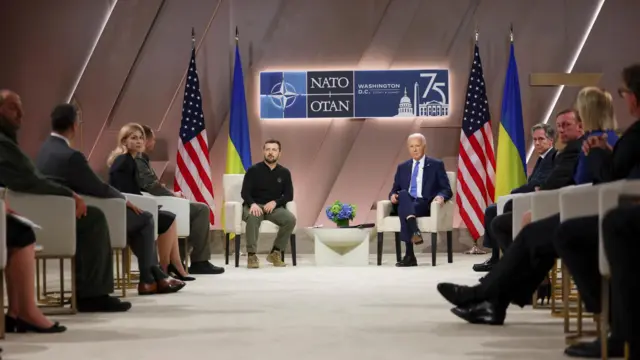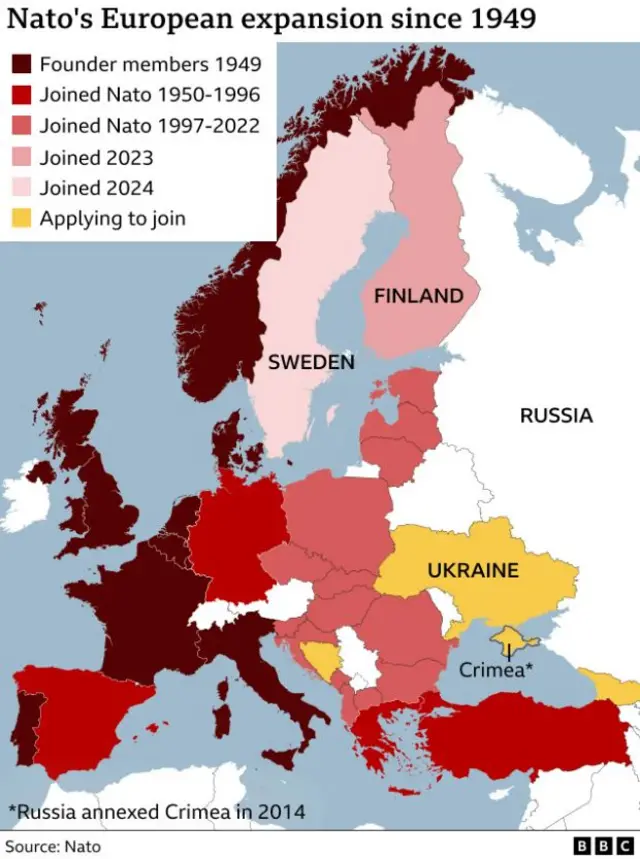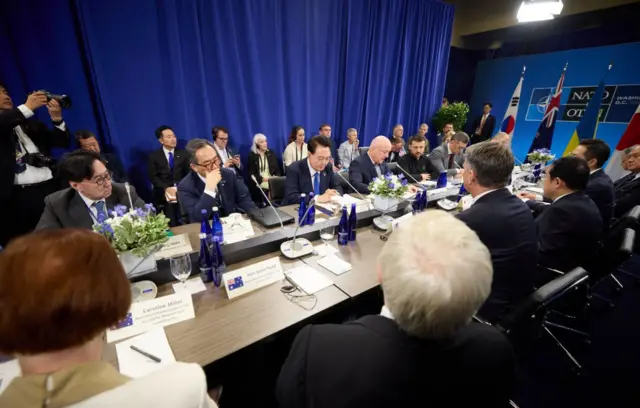What's in the new US security package for Ukraine?published at 20:47 BST 11 July 2024
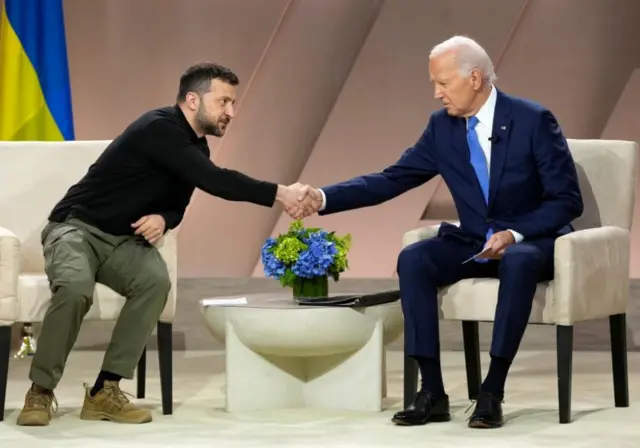 Image source, EPA
Image source, EPALet's take a look now at some more detail on the new US security package to Ukraine, worth $225m (£174m), that was announced today.
It includes a Patriot missile battery, additional ammunition for high-mobility artillery rocket systems and missiles, among other items.
The US has provided more than $50bn in military aid since Russia's full-scale invasion of Ukraine in 2022 - more than any country.
In April, the US House of Representatives finally approved $61bn in new US military aid to Ukraine. The much-delayed support had vocal opponents in Congress and it took a fragile bipartisan deal to get the package through.
